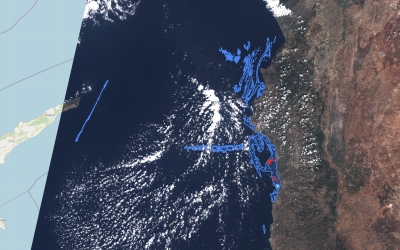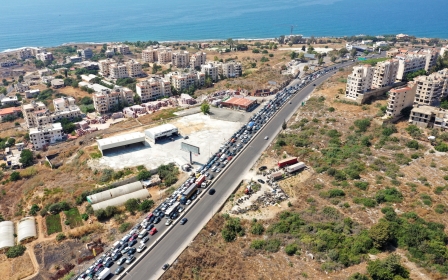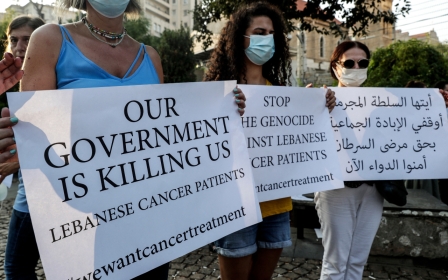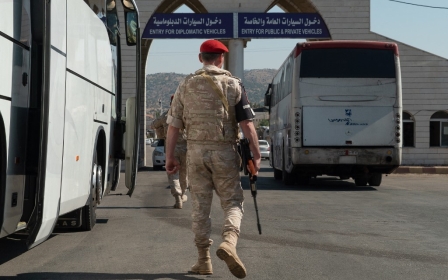Lebanon delegation make first official visit to Syria in a decade
Lebanese officials visited Damascus on Saturday to discuss plans to import gas through war-torn Syria's territory, in the first official diplomatic visit since the beginning of the 10-year-old conflict.
The delegation aimed to pave the way for a US-backed plan to ease the crippling power shortages in Lebanon by transmitting electricity via the Syrian grid.
New MEE newsletter: Jerusalem Dispatch
Sign up to get the latest insights and analysis on Israel-Palestine, alongside Turkey Unpacked and other MEE newsletters
The plan involves using Egyptian gas to generate electricity in Jordan that will then be transmitted via Syria to Lebanon.
"The Syrian side welcomed the request and assured it was ready to oblige it," Nasri Khoury, secretary general of the Lebanese Syrian Higher Council, said in a brief statement after the meeting, Reuters reported.
The Lebanese delegation included Finance Minister Ghazi Wazni, Energy Minister Raymond Ghajar, General Security Agency Chief Abbas Ibrahim, and Zeina Akar, who holds the posts of defence minister, foreign minister, and deputy premier, Syria's information ministry said in a statement sent to journalists.
Akar told Reuters that she hoped that the project would move quickly because the Lebanese people needed the fuel and were living in difficult circumstances.
Could sanctions be waived?
Lebanon has maintained diplomatic ties with Syria but adopted a so-called policy of dissociation from the conflict since it started in 2011, which has limited official dealings.
Lebanese security officials and politicians have made several visits to Syria in recent years, but almost exclusively in a personal capacity or on behalf of political parties that support President Bashar al-Assad's government.
They include representatives of the powerful Iran-backed Hezbollah movement, which has been battling alongside Assad's forces in Syria since the early stages of the war.
Last November, a small Lebanese delegation participated in a Russian-sponsored conference in Damascus that discussed the return of Syrian refugees.
The upcoming visit comes after the Lebanese presidency last month said that Washington had agreed to help Lebanon secure electricity and natural gas from Jordan and Egypt through Syrian territory.
This implied that the US was willing to waive sanctions, which prohibit any official transactions with the Syrian government, and which have hampered previous attempts by Lebanon to source gas from Egypt.
Lebanon, a country of more than six million people, is grappling with an economic crisis branded by the World Bank as one of the planet's worst since the mid-1850s.
The central bank is struggling to afford basic imports, including fuel, which has caused shortages and prolonged power cuts that now last as long as 22 hours per day.
Middle East Eye delivers independent and unrivalled coverage and analysis of the Middle East, North Africa and beyond. To learn more about republishing this content and the associated fees, please fill out this form. More about MEE can be found here.






